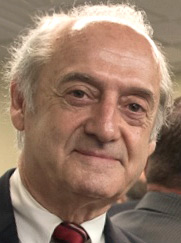

 At Munich's twin security gatherings, leaders warned that cyber conflict, transatlantic rifts and weaponised AI are pushing the rules-based order into a perilous transition, where deterrence falters, norms erode and digital sovereignty trumps multistakeholder ideals.
At Munich's twin security gatherings, leaders warned that cyber conflict, transatlantic rifts and weaponised AI are pushing the rules-based order into a perilous transition, where deterrence falters, norms erode and digital sovereignty trumps multistakeholder ideals.
 Poland thwarted a large-scale cyberattack on its energy grid without disruption, offering a rare case study in critical infrastructure resilience, decentralised energy governance, and the balancing act between openness and digital security.
Poland thwarted a large-scale cyberattack on its energy grid without disruption, offering a rare case study in critical infrastructure resilience, decentralised energy governance, and the balancing act between openness and digital security.
 As Internet governance fragments in 2026, authority shifts from open, multistakeholder forums to state-led security regimes, legal instruments, and alliance-based cooperation, challenging longstanding institutions and reshaping global norms through enforcement rather than consensus.
As Internet governance fragments in 2026, authority shifts from open, multistakeholder forums to state-led security regimes, legal instruments, and alliance-based cooperation, challenging longstanding institutions and reshaping global norms through enforcement rather than consensus.
 Despite deep geopolitical divides, the WSIS+20 outcome document was adopted by consensus, preserving a multistakeholder vision for the digital future while deferring controversial issues to a time more conducive to progress.
Despite deep geopolitical divides, the WSIS+20 outcome document was adopted by consensus, preserving a multistakeholder vision for the digital future while deferring controversial issues to a time more conducive to progress.
 The ICC's new cyber policy reframes Internet infrastructure as crucial to prosecuting atrocities, prompting DNS operators and network providers to grapple with emerging obligations around evidence, neutrality, and cooperation in international justice.
The ICC's new cyber policy reframes Internet infrastructure as crucial to prosecuting atrocities, prompting DNS operators and network providers to grapple with emerging obligations around evidence, neutrality, and cooperation in international justice.
 eco's topDNS initiative and AV-Test are publishing monthly reports to help ISPs detect and mitigate DNS abuse by analysing malware, phishing, and PUA trends, creating a long-term data foundation for industry-wide transparency.
eco's topDNS initiative and AV-Test are publishing monthly reports to help ISPs detect and mitigate DNS abuse by analysing malware, phishing, and PUA trends, creating a long-term data foundation for industry-wide transparency.
 The international community has long struggled with the challenge of translating international law into actionable norms and practices in cyberspace. The conclusion of the United Nations Open-Ended Working Group (OEWG) on the security of and in the use of information and communications technologies 2021-2025 marks a vital milestone in that ongoing process.
The international community has long struggled with the challenge of translating international law into actionable norms and practices in cyberspace. The conclusion of the United Nations Open-Ended Working Group (OEWG) on the security of and in the use of information and communications technologies 2021-2025 marks a vital milestone in that ongoing process.
 Tech developments saw less drama than trade and environmental shifts during Trump's first 100 days. Continuity, not abrupt change, defined his approach to AI and digital regulation. Only 9 of 139 executive orders (EOs) focused on tech. Trump's tech policy emphasised reviews and incremental shifts. Public consultations on AI, cybersecurity, and cryptocurrencies signal steady evolution over upheaval.
Tech developments saw less drama than trade and environmental shifts during Trump's first 100 days. Continuity, not abrupt change, defined his approach to AI and digital regulation. Only 9 of 139 executive orders (EOs) focused on tech. Trump's tech policy emphasised reviews and incremental shifts. Public consultations on AI, cybersecurity, and cryptocurrencies signal steady evolution over upheaval.
 Sometime by year-end, the UN General Assembly (UNGA) will vote on the proposed UN Convention Against Cybercrime. The treaty is opposed by most civil liberties organizations and Internet businesses, although the US position appears uncertain, mostly for reasons of foreign policy.
Sometime by year-end, the UN General Assembly (UNGA) will vote on the proposed UN Convention Against Cybercrime. The treaty is opposed by most civil liberties organizations and Internet businesses, although the US position appears uncertain, mostly for reasons of foreign policy.
 Cybersecurity and artificial intelligence were among the key topics at the 79th UN General Assembly (UNGA). UNGA's 1st Committee, responsible for disarmament and international security, concluded its negotiations in mid-November 2024. It discussed the 3rd Annual Progress Report (APR) of the Open-Ended Working Group (OEWG) and adopted a resolution that recommends, inter alia, the establishment of a new permanent cybersecurity mechanism within the UN system. Furthermore, it adopted two resolutions on autonomous weapon systems (AWS).
Cybersecurity and artificial intelligence were among the key topics at the 79th UN General Assembly (UNGA). UNGA's 1st Committee, responsible for disarmament and international security, concluded its negotiations in mid-November 2024. It discussed the 3rd Annual Progress Report (APR) of the Open-Ended Working Group (OEWG) and adopted a resolution that recommends, inter alia, the establishment of a new permanent cybersecurity mechanism within the UN system. Furthermore, it adopted two resolutions on autonomous weapon systems (AWS).